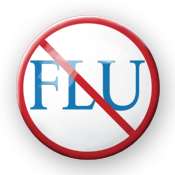| |||||||||||||||||||
Northern Arizona University’s Flagstaff campus is experiencing a surge in influenza cases among faculty, staff and students.
According to Beth Applebee, director of Fronske Health Center, 306 influenza-like illnesses were reported to the Centers for Disease Control from Jan. 22 to Feb. 5, compared to nine cases reported during the same time last year.
There has been a large increase in reported cases at Fronske just this week, and Applebee said the health center expects the numbers to keep increasing.
“People are indoors in the winter, which is a great opportunity to spread the flu from one person to another,” said Dr. Timothy Fleming, medical director and staff physician at Fronske. “The flu vaccine works pretty well, but not everyone gets it.”
According to Fronske, flu seasons are unpredictable. Even though epidemics of flu are at their peak every January and February, the severity of each epidemic depends on many factors, including the different types and strains of influenza viruses circulating and whether or not they match the current vaccine.
This season, influenza has been rampant in all corners of the state. There have been 954 lab-confirmed cases of influenza in Arizona this flu season, according to the Arizona Department of Health Services. This season’s high rate of reported cases has led the CDC to designate Arizona as a location for the highest flu activity, according to The Arizona Republic.
At NAU, several departments note they have not seen a significant increase in the amount of people absent, but among those who are, there is a trend to be out of work longer.
The main way to spread influenza is through coughs and sneezes that are passed from person to person.
Applebee warns that the flu is highly contagious; healthy adults may be able to spread the virus from one day before symptoms develop to five days after becoming sick, while children may pass on the virus for a week or more. Also, a person may have the virus and have no symptoms, but still be able to pass it on.
Applebee urges those that are ill to stay home to prevent further spread.




 Cover your mouth
Cover your mouth